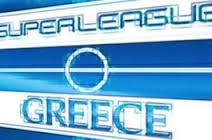By Paul Nicholson
March 26 – The lifting of the suspension of the Greek Superleague is under discussion with the clubs meeting again today. But suspension will remain in place until clubs agree to government conditions stipulated by Greece’s deputy sports minister Giorgos Vasileiadis.
Last Friday no resolution could be found, pushing the debate into this week, but agreement looks to be some way off as wider Greek politics are once again being played out in the football arena.
With Olympiakos reportedly refusing to sign up to all the proposals, a new political twist hit the headlines with news that Olympiakos owner Evangelos Marinakis was a subject in a revived investigation into a drugs shipment intercepted by the Greek coastguard four years ago.
That case was closed in 2016 and 12 people convicted and serving prison time. But Greek law has a peculiarity enabling judges to reopen old cases, even after judgement. One of the original allegations were that Marinakis and three business associates were storing drugs shipped into the country in 2014 from the Middle East on a cargo ship called Noor 1.
Those allegations were never supported with fact and never became a court case. Marinakis’s reaction at the weekend was via statement on the Olympiakos website saying: “The recent judicial action is a deliberate attempt at character assassination. The allegations are fabricated and without any foundation in law or fact.”
The timing of the resurrection of this case can’t be divorced from a wider political context and certainly introduces some deflection from the politics of the current Greek football crisis. That was caused by PAOK’s Greek Russian owner Ivan Savvidis entering the field of play displaying a holstered hand gun to dispute and complain referee decisions while the match was in progress.
Before arriving in Greece, Savvidis, a Russian oligarch, held political position in Russia and is reportedly close to Russian president Vladimir Putin.
Savvidis has also become close to the Greek government (ministers have frequently been entertained by him at PAOK), who in turn are actively courting Russian money and investment into Greece. Savvidis’s actions are embarrassing for both sides, and while an arrest warrant has been issued, there has been a news blackout on his status.
With Marinakis being dragged back into the news agenda – even though unrelated –confusion and misdirection becomes a useful political tool. One newspaper even lead with a headline suggesting Marinakis had been charged – a reality far from the truth as he has not been charged with anything.
Marinakis was unequivocal in his assessment, saying: “Unfortunately, this plot has also been eagerly served by certain members of the judiciary who wish to curry favour with the government.” Speaking of a “deliberate” and “criminal” plot, which threatens the rule of law he said: “The plotters are well advised to remember this: I will not compromise, I will not capitulate, nor will I succumb to their dirty plan.”
Where this leaves the Greek Superleague with its owners warring over how football should be run in country and their own interaction with the political elite and their agendas, remains to be seem.
Sports minister Vasileiadis had a four point proposal for clubs to agree to before the league could restart. They included a scale of sanctions that could include relegations, as well as controls over clubs and sanctions for complaining against officials – the source of the initial frustrations in Greece.
A far simpler solution would to be to ensure top games are independently refereed with appointments made from outside Greece – a request already made by a number of the top Greek clubs.
While the current crisis has as its genesis the underlying suspicion that referee appointments were far from independent, the latest conflagration was sparked by the behaviour of one powerful owner. Before the Greeks and their politicians deal with that situation transparently and honestly, it is hard to see how they can address the deeper issues the clubs have been complaining about and which neither UEFA or FIFA have been able to resolve.
Contact the writer of this story at moc.l1743596101labto1743596101ofdlr1743596101owedi1743596101sni@n1743596101osloh1743596101cin.l1743596101uap1743596101

